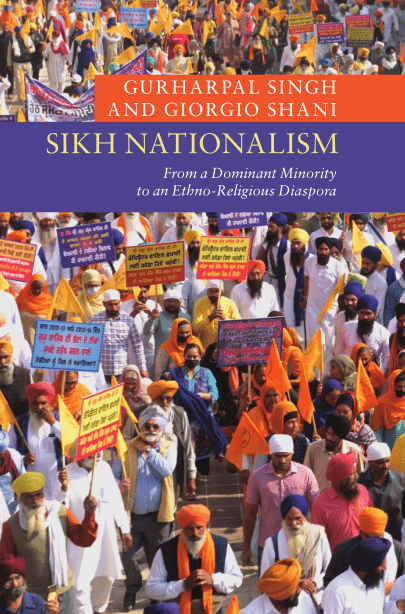Making Identity
Sikh Formations Webinar – Winter 2022
January 29th, 2022
Welcome to the fourth Sikh & Punjab Studies Webinar of 2022 organized by the Sikh Formations editorial team.
Moderators:
Dr. Arvind-Pal S. Mandair (University of Michigan)
Dr. Anneeth Kaur Hundle (University of California – Irvine)
Dr. Harjeet Grewal (University of Calgary)
Program
Introductions: 11:00 a.m. to 11:10 a.m. EST
Session 1
Time: 11:10 p.m. to 12:05 p.m. EST
Title: The Myth of the Tide of Turbans: Sikhs and the Politics of “Asiatic” Labor on the Pacific Coast, 1905–1914
Speaker: Dr. Sunit Singh (University of Chicago)
Abstract: Around 1905, British Indian subjects, primarily Sikhs from the Punjab, started to venture to the western shores of Canada and America in search of employment. All of the central members of the Hindustan Association of the Pacific Coast, colloquially referred to as the Ghadar party, which tried to foment a revolution in British India in the midst of the First World War, had shared the experience of competing for work on the Pacific slope, on projects such as the Canadian-Pacific Railway, or in the lumber mills and salmon canneries that stretched the coastline from British Columbia to Oregon, or as field laborers in the fertile valleys of California. The industries reshaping the landscape of the West Coast readily absorbed British Indian labor, much as these sectors had employed the multitudes of Chinese, Greek, Irish, and Japanese newcomers who came before them. Yet the apparent idyll was interrupted by a forceful backlash, as a deepening financial crisis fanned anti-Indian sentiments, beginning around 1907. Though the economic downturn was short-lived, there was a call to stem the “Tide of Turbans,” which were followed by riots to root out Indian and “Asiatic” workmen from Bellingham, Washington (1907), Vancouver, British Columbia (1907), Fair Oaks, California (1908), and St. Johns, Oregon (1910). This talk addresses the myth of the “Tide of Turbans” and the myth of a unified “white” opposition to the migrants.

Time: 12:05 p.m. to 1:00 p.m. EST
Title: Racism, Racialization and Mistaken Identity – The Sikh Experience
Speaker: Dr. Jagbir Jhutti-Johal (University of Birmingham)
Break
Time: 1:00 p.m. to 1:05 p.m. EST
Session 2: Book Forum
About the Book

This important volume provides a clear, concise and comprehensive guide to the history of Sikh nationalism from the late nineteenth century to the present. Drawing on A. D. Smith’s ethno-symbolic approach, Gurharpal Singh and Giorgio Shani use a new integrated methodology to understand the historical and sociological development of modern Sikh nationalism. By emphasising the importance of studying Sikh nationalism from the perspective of the nation-building projects of India and Pakistan, the recent literature on religious nationalism and the need to integrate the study of the diaspora with the Sikhs in South Asia, they provide a fresh approach to a complex subject. Singh and Shani evaluate the current condition of Sikh nationalism in a globalised world and consider the lessons the Sikh case offers for the comparative study of ethnicity, nations and nationalism.
About the Speakers
Time: 1:05 p.m. to 2:15 p.m. EST
Book: Sikh Nationalism: From a Dominant Minority to an Ethno-Religious Diaspora
Authors: Dr. Gurharpal Singh (SOAS) & Dr. Giorgio Shani (International Christian University – Japan)
Discussants: Dr. Mark Juergensmeyer (University of California – Santa Barbara) & Dr. Van Dusenbery (Hamline University)







